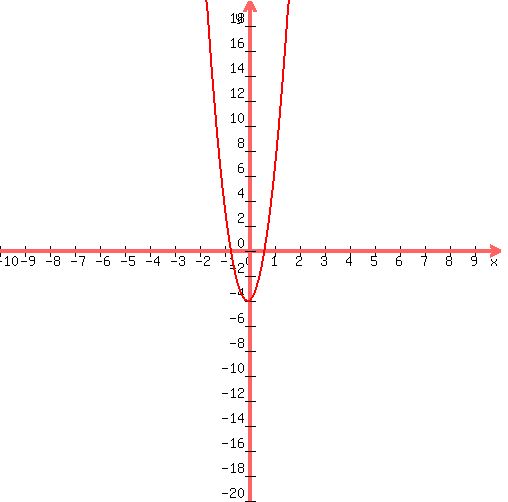Question 224653: Struggling on this end. I am supposed to solve by introducing a substitution that transforms equation to quadratic form.
(3y)^-2 + (y)^-1 -4=0
Thank you
Found 2 solutions by NYC Math Tutor, drj:
Answer by NYC Math Tutor(4)   (Show Source): (Show Source):
You can put this solution on YOUR website! A quadratic equation is in the form of ax^2 + bx + c
So, what you need to do is change your exponents which are -2, -1, and 0 to 2, 1, and 0. This can be done by multiplying the exponents by -1. So, what you can do is substitute y^-1 for y. Then,
(3y^-1)^-2 + (y^-1)^-1 - 4 = 0
(3^-2)y^2 + y - 4 = 0
Answer by drj(1380)   (Show Source): (Show Source):
You can put this solution on YOUR website! Solve by introducing a substitution that transforms equation to quadratic form.

Step 1. Let 
Step 2. Substitute x into 

Step 3. To solve, use the given quadratic formula below

where a=9, b=1, and c=-4
| Solved by pluggable solver: SOLVE quadratic equation with variable |
Quadratic equation  (in our case (in our case  ) has the following solutons: ) has the following solutons:

For these solutions to exist, the discriminant  should not be a negative number. should not be a negative number.
First, we need to compute the discriminant  : :  . .
Discriminant d=145 is greater than zero. That means that there are two solutions:  . .


Quadratic expression  can be factored: can be factored:

Again, the answer is: 0.613421921044016, -0.724533032155128.
Here's your graph:
 |
Since  , then , then 
And  , then , then 
Step 4. The solution is 1.63 and -1.38
I hope the above steps were helpful.
For FREE Step-By-Step videos in Introduction to Algebra, please visit
http://www.FreedomUniversity.TV/courses/IntroAlgebra and for Trigonometry visit
http://www.FreedomUniversity.TV/courses/Trigonometry.
Good luck in your studies!
Respectfully,
Dr J
|
|
|